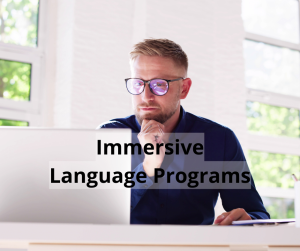Are you intrigued by the beauty of the Arabic language and eager to embark on the journey of learning it? The decision to learn Arabic opens up a world of opportunities for cultural exploration, personal growth, and global communication. But where should you begin your Arabic learning journey? In this comprehensive guide, we’ll explore various options and resources available to help you start your Arabic learning adventure on the right foot.
Introduction
Learning Arabic is an exciting journey that opens doors to a rich cultural heritage, fosters global connections, and enhances personal and professional opportunities. Whether you’re drawn to Arabic for academic, professional, or personal reasons, finding the right learning environment is crucial to your success.
Learning Arabic Online
The internet offers a wealth of resources for learning Arabic online. From interactive courses and tutorials to language learning apps and online communities, there are numerous platforms available to help you learn Arabic from the comfort of your home. Websites like Duolingo, Rosetta Stone, and Babbel offer structured lessons and interactive exercises tailored to different proficiency levels.
Benefits of Learning Arabic Online:
- Flexibility to study at your own pace
- Access to a wide range of resources and learning materials
- Opportunity to connect with Arabic speakers and learners worldwide
- Convenient learning experience from anywhere with an internet connection
Enrolling in Language Classes
Local language institutes, colleges, and universities often offer Arabic language classes for learners of all levels. These classes provide structured instruction, opportunities for practice, and access to experienced instructors who can guide you through the learning process. Whether you prefer traditional classroom settings or online courses, enrolling in language classes can provide a supportive environment for learning Arabic.
Advantages of Language Classes:
- Structured curriculum tailored to different proficiency levels
- Interactive learning experience with opportunities for practice and feedback
- Access to experienced instructors who can provide guidance and support
- Social aspect of learning with classmates and peers
Private Tutoring
For personalized attention and tailored instruction, private tutoring may be an ideal option for learning Arabic. Private tutors can customize lessons to suit your learning style, pace, and goals, providing individualized support and feedback to help you progress efficiently. Whether in-person or online, private tutoring offers flexibility and personalized attention that can accelerate your Arabic learning journey.
Benefits of Private Tutoring:
- Personalized instruction tailored to your individual needs and goals
- Flexibility to schedule lessons according to your availability
- One-on-one attention and feedback from experienced tutors
- Opportunity to focus on specific areas of difficulty or interest
Language Exchange Programs
Language exchange programs pair language learners with native speakers for mutual language practice and cultural exchange. Platforms like Tandem, HelloTalk, and ConversationExchange connect learners worldwide, enabling you to practice Arabic while helping others learn your native language. Language exchange programs offer opportunities for authentic language practice, cultural immersion, and building global connections.
Advantages of Language Exchange Programs:
- Opportunities for authentic language practice with native speakers
- Cultural exchange and immersion experiences
- Mutual support and encouragement from language exchange partners
- Building global connections and friendships with people from around the world
Immersive Language Programs
Immersive language programs provide intensive language instruction and cultural immersion experiences in Arabic-speaking countries. Whether through study abroad programs, language schools, or cultural exchange initiatives, immersive programs offer opportunities to immerse yourself in Arabic language and culture, accelerate your language learning progress, and gain firsthand experience with native speakers.
Benefits of Immersive Language Programs:
- Intensive language instruction and cultural immersion experiences
- Opportunities to practice Arabic in real-life situations and contexts
- Exposure to authentic language usage and cultural nuances
- Accelerated language learning progress through immersion and immersion experiences
Studying Abroad
Studying abroad in an Arabic-speaking country offers a unique opportunity to immerse yourself in Arabic language and culture while pursuing academic or cultural interests. Whether through university exchange programs, language schools, or cultural immersion programs, studying abroad provides a transformative experience that enhances language proficiency, cultural understanding, and personal growth.
Advantages of Studying Abroad:
- Immersive language and cultural immersion experience
- Exposure to authentic language usage in daily life
- Opportunities for academic study, cultural exploration, and personal growth
- Building global connections and friendships with people from diverse backgrounds
Self-Study Resources
Self-study resources such as textbooks, language learning apps, and online courses provide flexibility and autonomy for independent learners. Whether supplementing formal instruction or learning on your own, self-study resources offer a variety of tools and materials to support your Arabic language learning journey.
Advantages of Self-Study Resources:
- Flexibility to study at your own pace and convenience
- Access to a wide range of learning materials and resources
- Opportunity to customize your learning experience to suit your individual needs and preferences
- Autonomy and independence in directing your language learning progress
Community Centers and Cultural Institutes
Local community centers, cultural institutes, and Arabic cultural organizations often offer language classes, workshops, and cultural events for learners of Arabic. These organizations provide opportunities to engage with Arabic language and culture in a supportive and community-oriented environment, fostering connections and friendships with fellow learners and enthusiasts.
Benefits of Community Centers and Cultural Institutes:
- Access to Arabic language classes, workshops, and cultural events
- Supportive and community-oriented learning environment
- Opportunities to engage with Arabic-speaking communities and cultural resources
- Building connections and friendships with fellow learners and enthusiasts
Conclusion
Choosing where to learn Arabic is a personal decision that depends on your individual preferences, goals, and learning style. Whether through online courses, language classes, private tutoring, language exchange programs, immersive experiences, or self-study resources, there are numerous options available to support your Arabic learning journey. Explore different options, experiment with various methods, and find the approach that works best for you.
FAQs
How do I decide where to learn Arabic?
Consider factors such as your learning style, goals, budget, and availability when choosing where to learn Arabic. Explore different options, such as online courses, language classes, private tutoring, language exchange programs, and immersive experiences, and choose the approach that aligns with your preferences and needs.
Can I learn Arabic on my own?
Yes, many learners successfully teach themselves Arabic using self-study resources such as textbooks, language learning apps.






